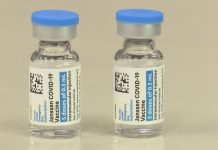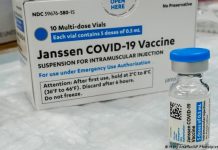Fifteen regions of the genome may be involved in the development of depression. Although major depressive disorder (MDD) has been shown in the past to be highly inheritable, this is the first time that a study describes so many significant genetic associations with MDD in individuals from European descent.
The study was carried out by drug giant Pfizer as part of an alliance with 23andMe, the California company whose gene reports have been purchased by more than 1.2 million people.
So far the vast majority of efforts to locate genetic risks for depression have failed, probably because the efforts have been too small to find anything.
“Everyone is recognizing that this is a numbers problem,” says Ashley Winslow, formerly a neuroscientist at Pfizer and now the director of neurogenetics at the Orphan Disease Center at the University of Pennsylvania. Winslow led the research effort. “It’s hard if not impossible to get to the numbers that we saw in the 23andMe study.”
The results emerged from what is termed a “genome-wide association study.” In this approach, the DNA of many people with a disease is compared to that of healthy controls, using a computerized search. Any genetic differences appearing more often in sick people can hint at what genes are involved.
This gene-hunting tactic has led to important insights into diabetes, schizophrenia, and other common diseases. But depression has remained mostly untouched, until now. Previously, a study in 6,000 severely depressed Chinese women located two signals in the genome, but other surveys came up empty.
“The big story is that 23andMe got us over the inflection point for depression,” says Douglas Levinson, a psychiatrist and gene researcher at Stanford University involved with the Psychiatric Genomics Consortium, another gene-hunting group. “That is exciting. It makes us optimistic that we are finally there.”
23andMe has sold more than a million gene-test kits. The product, costing $199, is mostly for entertainment, like finding out about one’s ethnic background. But more than half of its customers have agreed to allow their DNA to be used in further research and answer survey questions about their health.
Through its surveys, the company was able to locate more than 141,000 people who said they’d been diagnosed with depression. That is about 10 times more than the next-largest depression study ever carried out, says Levinson.
The need for ever larger databases is keenly felt by geneticists. At their urging, the U.S. government this year began implementing plans for a million-person precision medicine database. The genetic risk for depression is actually due to hundreds of genes, each having a very small effect.
The authors of the report called the finding an endorsement of 23andMe’s data. But Levinson noted that depression is also the perfect test case for a consumer database. It’s a common disease and no longer highly stigmatized, so people are willing to say they have it. But other psychiatric ailments are much less common. “It they tried to do it in schizophrenia or anorexia they’d probably fail,” says Levinson. “That’s the caveat here.”
Jeffrey S. Overstreet













